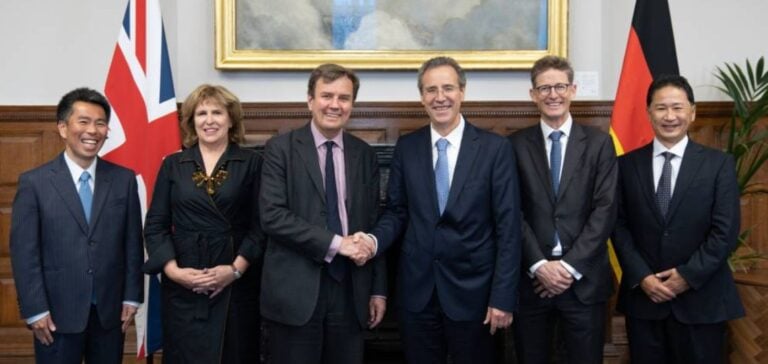The 1.4GW NeuConnect project represents a major step forward in Europe’s energy transition. According to German Energy Minister Robert Habeck, the carbon-neutral electricity system requires greater flexibility. This project not only extends the power grids in Germany, but also creates connections with neighboring countries. At the launch ceremony in Wilhelmshaven, attended by UK Trade Minister Greg Hands, Habeck emphasized that this cooperation augurs well for future collaborative projects between Germany and the UK.
Impact on electricity prices
Analysts at S&P Global Commodity Insights predict that electricity prices in Germany will remain higher than in Great Britain over the next few years. A recent study estimates that German prices will reach €56.50/MWh in 2030, compared with €50.20/MWh for Great Britain (in real 2022 prices). Platts currently values British electricity for 2025 at €93.74/MWh, on a par with Germany.
The Role of Global Investors
Developed by global investors including Meridiam, Allianz Capital Partners, Kansai Electric Power and Tepco, NeuConnect is the largest single Anglo-German infrastructure investment. Work began last summer on the British side, with some 725km of land and submarine cable linking the Isle of Grain in Kent to Wilhelmshaven. This project will contribute to the integration of renewable energy sources in both countries. This project aims not only to stabilize electricity prices, but also to improve energy security by integrating renewable energy sources. For Germany, which is increasingly focusing on green energy, this interconnection offers greater flexibility to manage fluctuations in renewable energy production. For the UK, it offers an opportunity to diversify its sources of energy supply. The construction of NeuConnect marks an important milestone in energy cooperation between Germany and the UK.





















